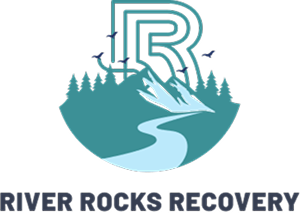Choosing the right addiction therapist is a crucial step in your recovery journey. A qualified and compassionate therapist can provide invaluable support, guidance, and tools to help you overcome addiction and build a fulfilling life. By understanding your specific needs and conducting thorough research, you can find a therapist who is the perfect fit for your journey.
The first step in finding the right addiction therapist is to understand your own needs. Reflect on the specific challenges you’re facing, the type of addiction you’re struggling with, and the goals you hope to achieve through therapy. Consider whether you prefer individual or group therapy sessions, and if you have any specific therapeutic approaches that resonate with you.
Finding Qualified Therapists
Once you have a clear understanding of your needs, it’s time to start your search for qualified addiction therapists. Several resources can assist you in finding suitable professionals.
Leverage Your Network:
- Insurance Providers: Contact your insurance company to obtain a list of in-network therapists specializing in addiction treatment.
- Healthcare Providers: Your primary care physician or previous treatment providers may offer recommendations.
- Support Groups: Connect with other individuals in recovery who can share their experiences and therapist recommendations.
Online Directories:
- Utilize online platforms dedicated to finding mental health professionals, such as Psychology Today or the American Psychological Association (APA) directory.
- Refine your search based on location, specialization, and insurance acceptance.
Assessing Therapist Credentials and Qualifications
Once you’ve compiled a list of potential therapists, it’s essential to delve deeper into their credentials and qualifications. This information will help you determine if their expertise aligns with your specific needs.
Licensing and Certification
Verify that the therapist holds the appropriate licenses and certifications to practice in your state. Look for credentials such as Licensed Clinical Social Worker (LCSW), Licensed Marriage and Family Therapist (LMFT), or Licensed Professional Counselor (LPC).
Specialization in Addiction Treatment
Ensure the therapist has specific training and experience in treating addiction. Specialization in a particular type of addiction (e.g., substance abuse, gambling) can be beneficial.
Therapeutic Approach
Different therapists employ various therapeutic approaches. Research different methods (cognitive-behavioral therapy, dialectical behavior therapy, motivational interviewing) and select a therapist whose approach resonates with you.
Experience and Training
Consider the therapist’s overall experience in the field of addiction treatment. A strong track record of successful outcomes can be a positive indicator.
Professional Affiliations
Membership in professional organizations like the American Psychological Association (APA) or the National Association of Addiction Treatment Providers (NAATP) can signify a commitment to the field.
Scheduling an Initial Consultation
Once you’ve narrowed down your options, it’s time to schedule initial consultations with a few therapists. This meeting is an opportunity to ask questions, discuss your treatment goals, and assess your compatibility.
- Prepare a list of questions: Develop a list of questions to ask the therapist during the consultation. This could include their experience, treatment approach, and availability.
- Discuss your treatment goals: Clearly articulate your expectations and desired outcomes from therapy. This will help the therapist understand your needs and tailor their approach accordingly.
- Evaluate the therapist’s communication style: Pay attention to the therapist’s listening skills, empathy, and overall demeanor. A strong therapeutic relationship is built on trust and open communication.
- Consider your comfort level: Trust your gut instinct when deciding if you feel comfortable and connected with the therapist.
A good therapeutic relationship is essential for treatment success.
Finding the Right Fit
Building a strong therapeutic relationship is essential for successful addiction recovery. While credentials and qualifications are important, your personal connection with the therapist is equally vital.
Trust Your Intuition
Pay attention to your gut feelings during the initial consultation. Do you feel comfortable and understood by the therapist? A strong rapport is essential for open communication and progress.
Consider Your Comfort Level
Evaluate if the therapist’s personality and communication style align with your preferences. A good therapeutic relationship is built on mutual respect and trust.
Don’t Be Afraid to Interview Multiple Therapists
It’s okay to meet with several therapists before making a final decision. This allows you to compare different approaches and find the best fit for your needs.
Open and Honest Communication
Establish open and honest communication with your therapist. Share your thoughts, feelings, and concerns openly to build a strong therapeutic alliance.
Setting Realistic Expectations
Understand that therapy is a process that takes time and effort. Set realistic goals for yourself and your therapist.
Get Help on Addiction Counselors From River Rocks Recovery
Choosing the right therapist is a crucial step in your recovery journey. River Rocks Recovery can help connect you with experienced and qualified addiction therapists who specialize in treating various substance use disorders. We believe in the power of personalized care and provide a supportive environment for individuals seeking long-term freedom from addiction.
River Rocks Recovery offers a team of compassionate and skilled addiction counselors dedicated to helping clients achieve their recovery goals. Our addiction treatment programs are designed to address the unique needs of each individual, providing a comprehensive approach to healing.
Contact River Rocks Recovery at (888) 905-6281 or fill the contact form to discuss your needs and connect with an addiction therapist who can guide you towards a healthier future.
FAQs on Choosing the Best Addiction Therapist
How do I know what type of therapy I need for addiction recovery?
Consider your specific addiction, personal preferences, and treatment goals to determine the best therapy approach.
Can I see multiple therapists before making a decision?
Yes, it’s recommended to meet with several therapists to find the best fit for your needs and personality.
What if I can’t afford therapy?
Many therapists offer sliding scale fees or accept insurance. Some community health centers may provide low-cost or free counseling services.
What qualifications should I look for in an addiction therapist?
Look for a therapist with a license (LCSW, LMFT, LPC) and specialized training in addiction treatment.
How long does it typically take to find the right therapist?
Finding the right therapist can take time. Be patient and persistent in your search.
What should I expect in the first therapy session?
The initial session is often an opportunity to share your treatment goals, discuss your history, and assess if the therapist is a good fit.
What if I don’t feel a connection with my therapist?
It’s okay to switch therapists if you don’t feel a connection. Finding the right fit is crucial.
How often should I see my therapist?
The frequency of therapy sessions depends on individual needs and treatment goals. Typically, sessions occur weekly or bi-weekly.

